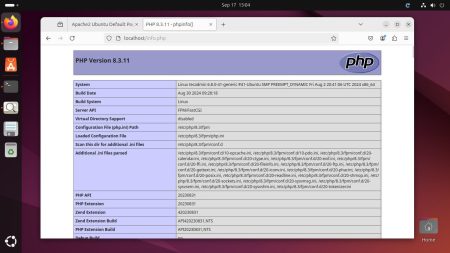Choosing the right web server is an essential decision when setting up a website or web application. Apache and Nginx are the two leading web servers in the market, each with its unique set of features, strengths, and weaknesses. In this article, we will compare the two popular web servers, Nginx and Apache, to help you decide which one best suits your needs.
1. Overview of Nginx and Apache
Nginx
Nginx (pronounced “engine-x”) is an open-source web server, reverse proxy server, and load balancer that was released in 2004 by Igor Sysoev. Known for its high performance, stability, and low resource consumption, Nginx has quickly become one of the most popular web servers in the world, powering high-traffic websites like Netflix, Dropbox, and WordPress.
Apache
The Apache HTTP Server, commonly referred to as Apache, is an open-source web server developed by the Apache Software Foundation. First released in 1995, Apache has been the most popular web server on the Internet since 1996. Apache is known for its extensibility, powerful features, and wide compatibility with various operating systems.
2. Performance and Scalability
Nginx
Nginx is designed for high concurrency and can handle a large number of simultaneous connections without using much memory or CPU. This is achieved through its event-driven architecture, which enables Nginx to process multiple requests concurrently. As a result, Nginx is an excellent choice for websites that experience high traffic or require a reverse proxy server or load balancer.
Apache
Apache, on the other hand, uses a threaded or process-based model to handle requests. Although this model can be effective in certain scenarios, it can become resource-intensive when dealing with a large number of concurrent connections. As a result, Apache may not be the best choice for high-traffic websites or those that require reverse proxy or load balancing capabilities.
3. Configuration and Management
Nginx
Nginx uses a straightforward configuration syntax that is easy to read and understand. The configuration file is centralized, which makes it simple to manage and maintain. However, some users might find the lack of a built-in GUI for configuration management to be a disadvantage.
Apache
Apache provides more flexibility in terms of configuration, as it allows users to configure settings on a per-directory basis using .htaccess files. While this flexibility can be beneficial, it can also make the configuration process more complex and harder to manage. Apache also has a range of third-party GUI tools available for configuration management, which some users may find helpful.
4. Extensibility and Modules
Nginx
Nginx supports a wide range of modules to extend its functionality. However, Nginx requires these modules to be compiled into the core software during installation. This means that adding or removing modules requires a recompilation of Nginx, which can be time-consuming and complicated for some users.
Apache
Apache, on the other hand, uses a dynamic module loading system that allows users to easily add or remove modules without recompiling the software. This makes Apache a more flexible and extensible web server compared to Nginx.
5. Security
Both Nginx and Apache have robust security features and a long history of security patches and updates. While both servers have their security strengths and weaknesses, choosing the right one for your specific needs depends on your specific security requirements and the expertise of your server administrators.
6. How to Choose between Apache and Nginx?
Ultimately, the choice between Nginx and Apache depends on your specific needs and requirements and preferences. Here is a summary of the key differences between the two web servers to help you make an informed decision:
| Feature | Nginx | Apache |
|---|---|---|
| Performance | High performance, low resource usage, excellent for high-traffic websites | Powerful, but can be resource-intensive for high-traffic websites |
| Configuration | Centralized configuration file, lacks built-in GUI | Per-directory .htaccess configuration, more complex management, third-party GUI tools available |
| Extensibility | Modules require compilation into core software | Dynamic module loading system, easier to add or remove modules without recompilation |
| Security | Robust security features, depends on specific requirements and server administrators’ expertise | Robust security features, depends on specific requirements and server administrators’ expertise |
Conclusion
In conclusion, if you require a web server with high performance and low resource consumption, Nginx may be the better choice for you, especially for high-traffic websites, reverse proxy servers, or load balancers. On the other hand, if you value flexibility, extensibility, and ease of configuration management, Apache might be a more suitable option.
Regardless of the web server you choose, it is essential to keep it up to date and properly configured to ensure optimal performance and security. Additionally, the expertise of your server administrators plays a crucial role in maintaining a secure and efficient web server environment.

